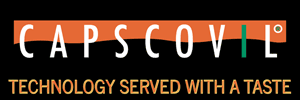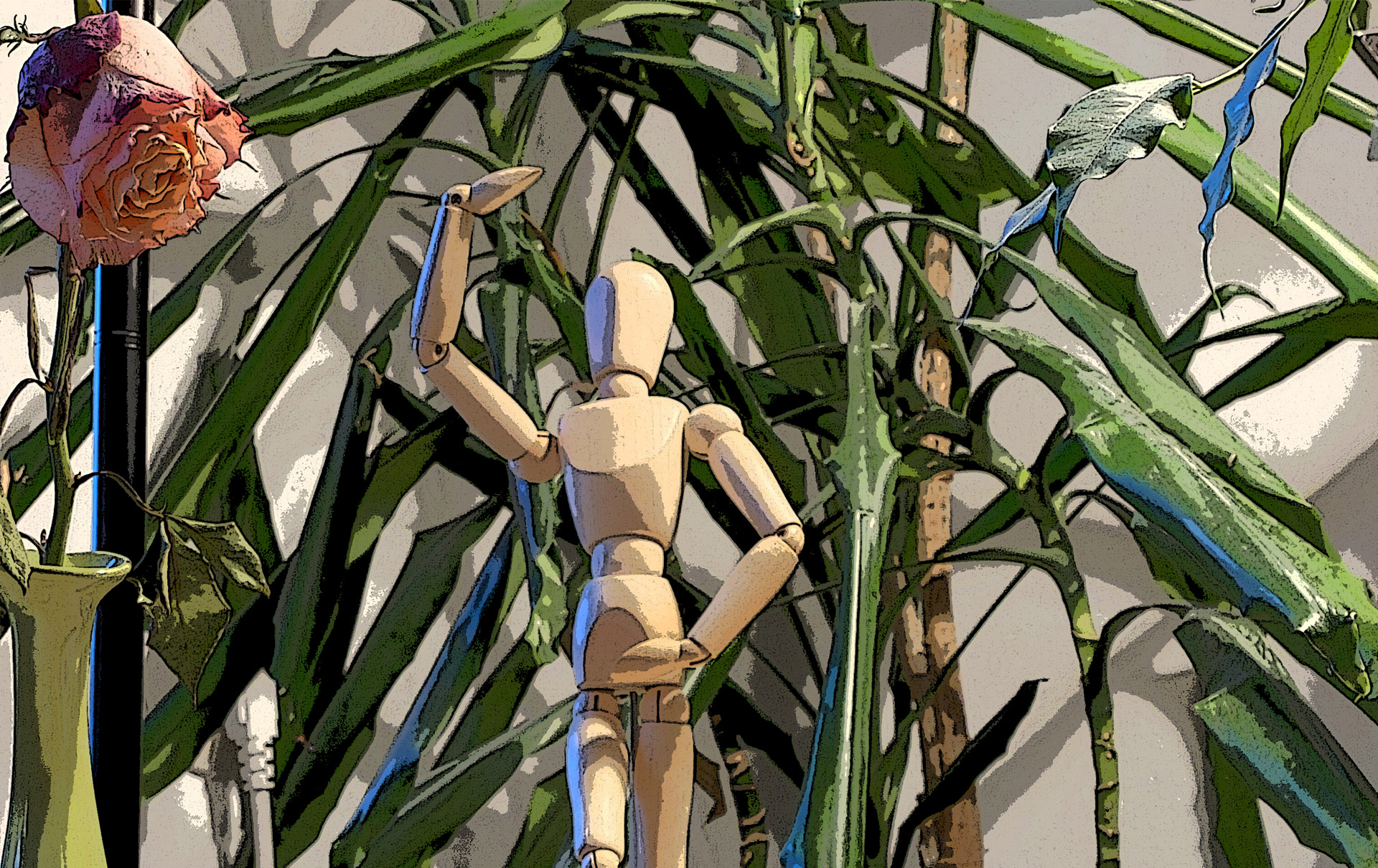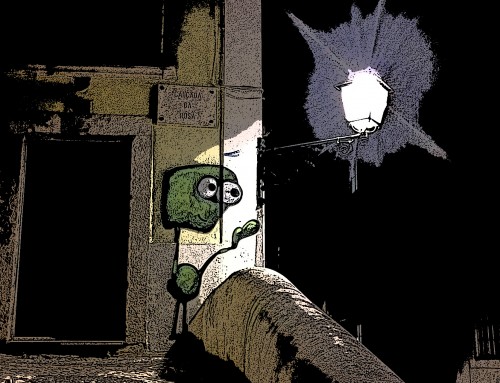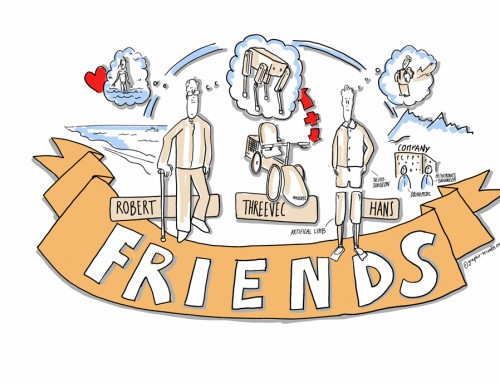An inspiring story, spiced up with facts and real role models. A micro novel on sustainability, innovation, and diversity in technology.
Author: Alice N. York. Editor: Niall Sellar
Louisa got off the phone. It had been an exhausting call. Again. Once in a while she had these and afterwards, she always asked herself why she bothered. She had spoken to one of her childhood friends. Years ago, as kids, they had been inseparable. As they grew older, their lives developed in different directions and they started to drift apart.
During these calls, she always felt attacked. Her friend questioned everything she did. Louisa started justifying, explaining. She didn’t even know what made her do it. Probably because a part of her wanted back their old relationship that had been shaped by mutual affirmation. Normally, she wouldn’t even have been around to take this call.
But her travel plans were on hold. Until when, nobody knew. She had been looking forward to flying over to Toronto so much after reading about this city months ago. A trip to Canada was high on her bucket list. Flight and apartment had all been booked. Then the pandemic had struck, and the world went into lockdown. Most parts of it, anyway.
At first, she had been devastated. Starting in mid-March she had been confined to her apartment for several weeks, with the exception of running errands that were deemed essential. At least she had a nice backyard to go outside for a break. Louisa had always loved to live out in the country and had come to appreciate it even more.
At the beginning not being able to see her family and friends had been torture. Dining out on the weekend or sipping coffee with her best friends on lazy Sundays were fond memories that she longed to renew. Chats on social media were no surrogate. Hour-long video calls were awkward at first but eventually turned into fun, minus the hugs and high-fives. In-between, the web and TV became constant companions.
News tickers provided updates and potential countermeasures seemingly every minute. Constantly following up on them caused anxiety. After a few weeks she decided to check them less often and focus on major announcements. Her mood lifted instantly. There was so much confusion about this new corona virus that you didn’t know whom you could trust.
The terminology added to the confusion. The root cause which scientists referred to as pathogen was called SARS-CoV-2, a new member of the corona virus family. People who contracted the virus got sick with a disease dubbed COVID-19. Maybe it was like a flu. But it could cause a lot more harm. For some it was deadly. Others again didn’t show any symptoms at all.
Initial reports said that mainly elderly people were at risk and those who already suffered from another illness or had a weak immune system. Children and young people were less likely to show a severe progression. Blood type also seemed to play a role. But nobody knew much. Everyone was groping in the dark.
Looking at countries that had been more successful in reducing the reproduction rate, one thing was clear: in order to contain the disease, one needed to restrict movement and contact. Interestingly enough, most countries that had been successful in preventing major outbreaks were led by women. Germany was one of those countries.
Step by step, Louisa adapted to what was referred to as the new normal. She kept her distance when running errands, had a mask in almost every jacket and purse, and made a habit of washing her hands often and thoroughly. Soap was said to be more effective in dissolving, and thus neutralizing, the virus than over-the-counter disinfectants that contained less than sixty percent alcohol.
When the lockdown started, most of public life seemed to be on hold. Companies unaffected by the sudden decline of market demand sent their employees home to work. Others established reduced working hours, a measure subsidized by the government. Kindergartens, schools, and universities had to close all together. Just like restaurants, bars, and clubs; even the zoo.
Louisa had begun her interior design studies last year. The start of the second term was postponed by several weeks. Two months after the lockdown things started to become easier as confinement rules were revised. The first reunion with her family was celebrated in style: an all-day long barbeque feast on which the sun conferred its full approval.
Soon after, small groups of people not related to each other were allowed to meet again at outdoor bars and restaurants. Louisa’s hometown had been spared from severe cases and had no new ones to report. Everybody both breathed a sigh of relief and continued to be on their guard. Only a small fraction of people had been tested. The chance of someone carrying the virus without showing symptoms lingered on.
To minimize the risk, wearing a mask in public indoor spaces remained mandatory. And almost everybody in her town showed respect by wearing one. Soon, lectures resumed, shifting online. It had taken a while to get used to working from home, but now it was OK. In addition to her studies on interior design, Louisa and her fellow students were tasked with researching current technical trends in the industry.
As a creative mind, this was not something that came naturally. Where to start? The internet was a vast space and if you didn’t know exactly what to look for you could easily get lost.
One morning, Louisa received a surprise call. This time, it was an encouraging one. Her aunt, Alex, was a speaker at one of the world’s largest technology conferences and she had a guest ticket for her. Louisa was excited because when most people thought of interior design only few connected it with technology. The majority imagined luxuriously styled villas, airy lofts, and snug country homes.
Convenience and climate change, however, called for technology to make homes smart. Interior design per definition was the art and science of creating a healthy and appealing environment for inhabitants of a defined space. Sensors, software, and actuators were just as important as the effective use of space or aesthetic considerations: electrically operated windows and shades that adjusted automatically to in-house air quality and the position of the sun.
Ambient temperatures that could be set and controlled individually by room and time of day to cater to each person’s preference. Operating washing machines and dish washers or charging electrical vehicles in off-peak times balanced the electric grid’s load, benefiting both residents’ budgets and their environment.
Checking the conference’s website, speakers and schedule, Louisa was captivated at once and didn’t have to think twice about accepting the ticket. In early March, she learned, the organizers had taken the unprecedented step of moving the entire event online, thus ensuring that people could take part safely from home.
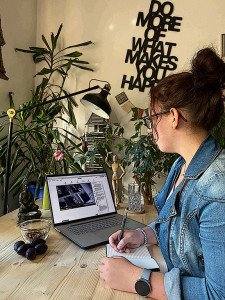 No mean feat, given that 32,000 attendees from over 140 countries would be keen to watch 634 curated speakers. For startups, participation in the conference could mean a break-through. Given the pandemic situation, venture capital and big spenders were harder to find. 850 investors would be roaming the event’s virtual exhibition halls in the hope of exploring funding possibilities and increasing their portfolio.
No mean feat, given that 32,000 attendees from over 140 countries would be keen to watch 634 curated speakers. For startups, participation in the conference could mean a break-through. Given the pandemic situation, venture capital and big spenders were harder to find. 850 investors would be roaming the event’s virtual exhibition halls in the hope of exploring funding possibilities and increasing their portfolio.
This heavily technology-focused world was new to Louisa and she was keen to dive in. It would give her a chance, she was certain, to surprise her professor. The event was usually hosted in Toronto, which she took to be a good omen. That’s why the schedule was six hours behind Central European Time.
By early afternoon on the first day, Louisa was all set: mobile app downloaded to plan her schedule and network with attendees or companies; web app logged-in to view video meetings, interviews and Q&A sessions or press conferences; laptop fully charged and set at a comfortable viewing angle; water and snacks at the ready. Navigating the vast array of topics had been overwhelming at first.
There were many talks related to the current situation and how companies and their employees had adjusted to working remotely or shifting gears in their digital transformation projects. Forced to juggle her schedule with tasks related to her studies, Louisa chose to focus on topics around sustainability, or on people whose stories had pricked her interest.
What would she learn?
COMING SOON – AS PRINTED AND E-BOOK EDITION
AMONG THE ROLE MODELS ARE
LOUISA KRONTHALER – ALYSSA CARLSON – EMMA ROSE COHEN –BRIAN BUSHELL – ETHAN SONG – MOLLY BLOOM
